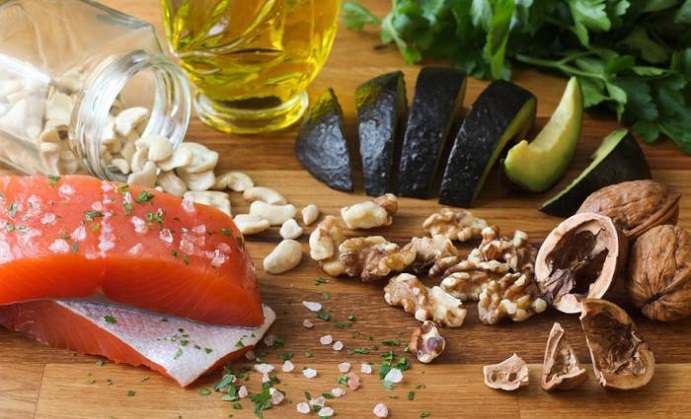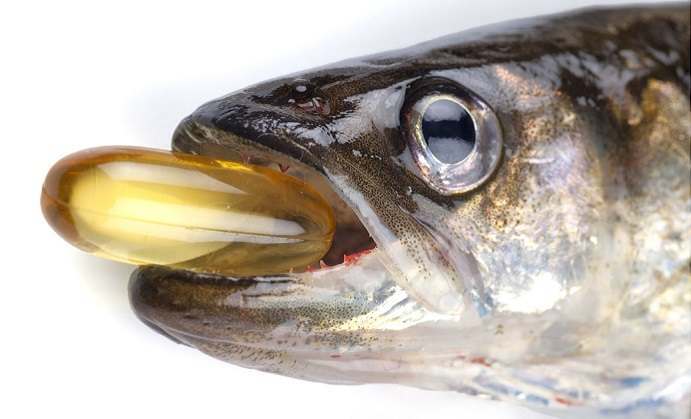Omega-3 fatty acids play a crucial role when it comes to the development of the cardiovascular system as well as the brain. The main sources of this nutrient is seafood such as salmon, sardines and tuna. But where does that leave vegetarians who do not eat fish? Where can they obtain the necessary amount of omega-3 fatty acid? Fortunately, fish is not the only food group that contains omega-3 fatty acid. There are also plants that offer this nutrient albeit at a lower amounts than their sea dwelling counterparts.
There are three types of omega-3 fatty acids:
- Docosahexaenoic Acid
- Alpha-Linoleic Acid
- Eicosapentaenoic Acid
The type of omega-3 fatty acid that vegetables offer is alpha-linoleic acids. However, once we have digested alpha-linoleic acid from vegetable our body can convert it into docosahexaenoic acid and eicosapentaenoic acid.
Now, let’s go over the list of alternative sources for omega-3 fatty acid that our vegetarian friends can take.
Vegetables and Fruits
 An alternative source of omega-3 fatty acid are vegetables and fruits. You can find a decent amount of omega-3 especially in green leafy vegetables like spinach. You can also obtain omega-3 from cauliflower, winter squash, and broccoli. You can try cooking these vegetables for a nutritious and delicious source of good fatty acids. As for fruits, berries such as cloudberries and blueberries are known to contain omega-3 as well.
An alternative source of omega-3 fatty acid are vegetables and fruits. You can find a decent amount of omega-3 especially in green leafy vegetables like spinach. You can also obtain omega-3 from cauliflower, winter squash, and broccoli. You can try cooking these vegetables for a nutritious and delicious source of good fatty acids. As for fruits, berries such as cloudberries and blueberries are known to contain omega-3 as well.
Nuts and Seeds
The go-to food for vegetarians looking to include omega-3 into their daily diet would definitely be nuts and seeds. Specifically, flaxseeds contain a decent amount of omega-3 fatty acid that makes it the prime candidate for the best omega-3 alternative source for vegetarians. Other seeds that are packed with omega-3 are hemp seeds and chia seeds.
Oils
 Certain types of oils are also known to contain omega-3 including flaxseed oil, olive oil, and soybean oil. To get optimum nutrients from these oils you can try adding a teaspoon of olive oil into your salad or mixing a teaspoon of flaxseed oil with your morning cereal or oatmeal. Studies have shown that the amount of omega-3 fatty acid you can get with these oils will be at their peak as long as you use them fresh without heating them up first.
Certain types of oils are also known to contain omega-3 including flaxseed oil, olive oil, and soybean oil. To get optimum nutrients from these oils you can try adding a teaspoon of olive oil into your salad or mixing a teaspoon of flaxseed oil with your morning cereal or oatmeal. Studies have shown that the amount of omega-3 fatty acid you can get with these oils will be at their peak as long as you use them fresh without heating them up first.
Other Alternative Sources
These are not the only alternative sources of omega-3 for vegetarians but they are the ones that offer the highest amount possible. You can also find omega-3 in foods such as tofu and beans but are considerably less compared to vegetables, fruits, nuts, and seeds. Another great source of omega-3 would be supplements. Of course, you should first check with a doctor before taking any form of supplements, especially if you are already taking a medication for an existing health condition as it might cause unwanted side effects.
Do you want to find an effective Omega-3 supplement? Check out our top rated Omega-3 products











